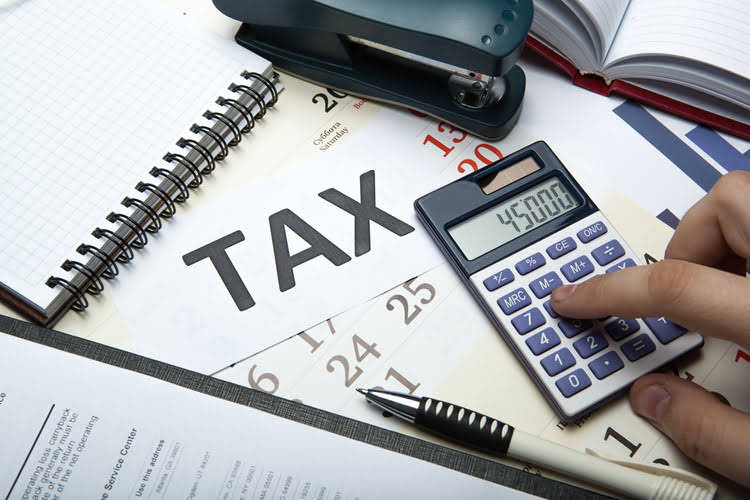
Or, they can sell the additional shares immediately, pocket the cash, and still retain the same number of shares they had before. In either case, the combination of the value of an investment in the company and the cash they hold will remain the same. Miller and Modigliani thus conclude that dividends are irrelevant, and investors shouldn’t care about the firm’s dividend policy because they can create their own synthetically. A stock-investing fund pays dividends from the earnings received from the many stocks held in its portfolio or by selling a certain share of stocks and distributing capital gains. First, we relied mainly on a survey-based approach rather than a statistical analysis of large datasets of publicly available information (secondary data). While survey research is not the standard academic approach in both cash dividends and stock dividends finance, it allows us to gather private information directly from the firm’s managers, offering insights that are otherwise unavailable through public sources.

1 Firm characteristics and survey responses
Stock dividends increase ownership without immediate cash payout, supporting long-term growth, while cash dividends provide immediate income but reduce cash reserves. Cash dividends are taxed in the year they are received, which can affect an investor’s net income. On the other hand, stock dividends usually offer tax deferral until the shares are sold, which may benefit investors aiming to manage their tax liabilities effectively.
- When dividends are actually paid to shareholders, the $1.5 million is deducted from the dividends payable subsection to account for the reduction in the company’s liabilities.
- Usually, a company issues stock dividends when it is short of cash or facing liquidity challenges.
- Furthermore, shareholders can choose to reinvest the cash dividends or use them for everyday expenses, contributing to a more stable financial situation.
- This comparative analysis provides valuable insights into a company’s dividend policy within its specific business context.
- A cash dividend may be paid to investors to reduce excess cash on the balance sheet that can’t be otherwise invested in the company for growth.
- Don’t put all your eggs in one basket by investing in just one or two dividend-paying stocks.
WANT YOUR COMPANY’S NEWS FEATURED ON PRNEWSWIRE.COM?

While dividend stocks are primarily known for providing income, they also offer the https://www.instagram.com/bookstime_inc potential for capital appreciation. Companies that consistently pay and increase dividends over time are often in strong financial health, which can lead to steady growth in their stock prices. Dividends can be paid out either as cash or in the form of additional stock, both of which have a different impact on stockholder equity. Cash dividends reduce stockholder equity, while stock dividends do not reduce stockholder equity. Unlike qualified and non-qualified cash dividends, dividends that are paid in the form of stock rather than cash are usually tax free.
Timing of Payment
Dividend-paying stocks often demonstrate greater resilience during market downturns compared to non-dividend-paying stocks. During periods of market volatility or economic uncertainty, the regular income from dividends can provide a safety net against declining stock prices. Dividend stocks provide a reliable income stream through regular payments, typically every quarter.


Cash dividends are the most common form of dividends – and likely the only type of dividend most investors will deal with. Cash dividends represent a crucial part of a company’s financial strategy, providing a direct monetary return to its shareholders. These dividends are https://www.bookstime.com/articles/depreciable-property a way for companies to share their profits, demonstrating a commitment to rewarding investors for their trust and investment in the company.
- An investor who owns five shares in the organization will receive an additional 10 shares through the dividend, increasing their ownership to 15 total shares.
- Additionally, we inquired further with the respondents from the eight firms that repurchased shares about their views on nine different theories/explanations for share repurchases.
- Cash dividends, sometimes called common dividends, represent a tangible return on investment for shareholders, as companies distribute a portion of their profits directly in the form of cash.
- Investors are heterogeneous, encompassing individuals, institutions, insiders, families, and governments, with varying dividend preferences based on factors such as consumption needs, tax circumstances, flotation costs, and risk tolerance.
- In contrast, a stock dividend doesn’t directly impact the organization’s cash flow since there is no outflow of money.
- First, our statistical tests on secondary data from various modeling using different econometric techniques help verify the consistency of our survey results, thus confirming the robustness of our main findings.
Cash Dividends on the Balance Sheet
- RQ5 examines whether share repurchases influence the choice not to pay cash dividends.
- The cash portion of the dividend is expressed in cents or dollars per share owned, and the stock portion is expressed as a percentage of the number of shares owned.
- When shareholders keep stock dividends and do not convert them to cash, they do not incur a tax obligation.
- Investors seeking dividend investments have several options, including stocks, mutual funds, and exchange-traded funds (ETFs).
- One of the most powerful aspects of investing is compounding, where the returns on your investments generate additional returns.
Relatedly, we present primary evidence on the key factors and theories underpinning zero-cash-dividend policies. Third, we offer insights into the views of LSE corporate managers about the relationship between share repurchases and the decision not to pay cash dividends. Fourth, we investigate whether the COVID-19 pandemic influenced the decision to abstain from paying cash dividends. RQ5 examines whether share repurchases influence the choice not to pay cash dividends. Since share repurchases are another popular way of distributing cash to shareholders, they might act as a substitute mechanism, potentially reducing the necessity to pay dividends. To explore this issue, we asked corporate managers of LSE non-dividend-paying firms if their company had repurchased shares in the past five years.
